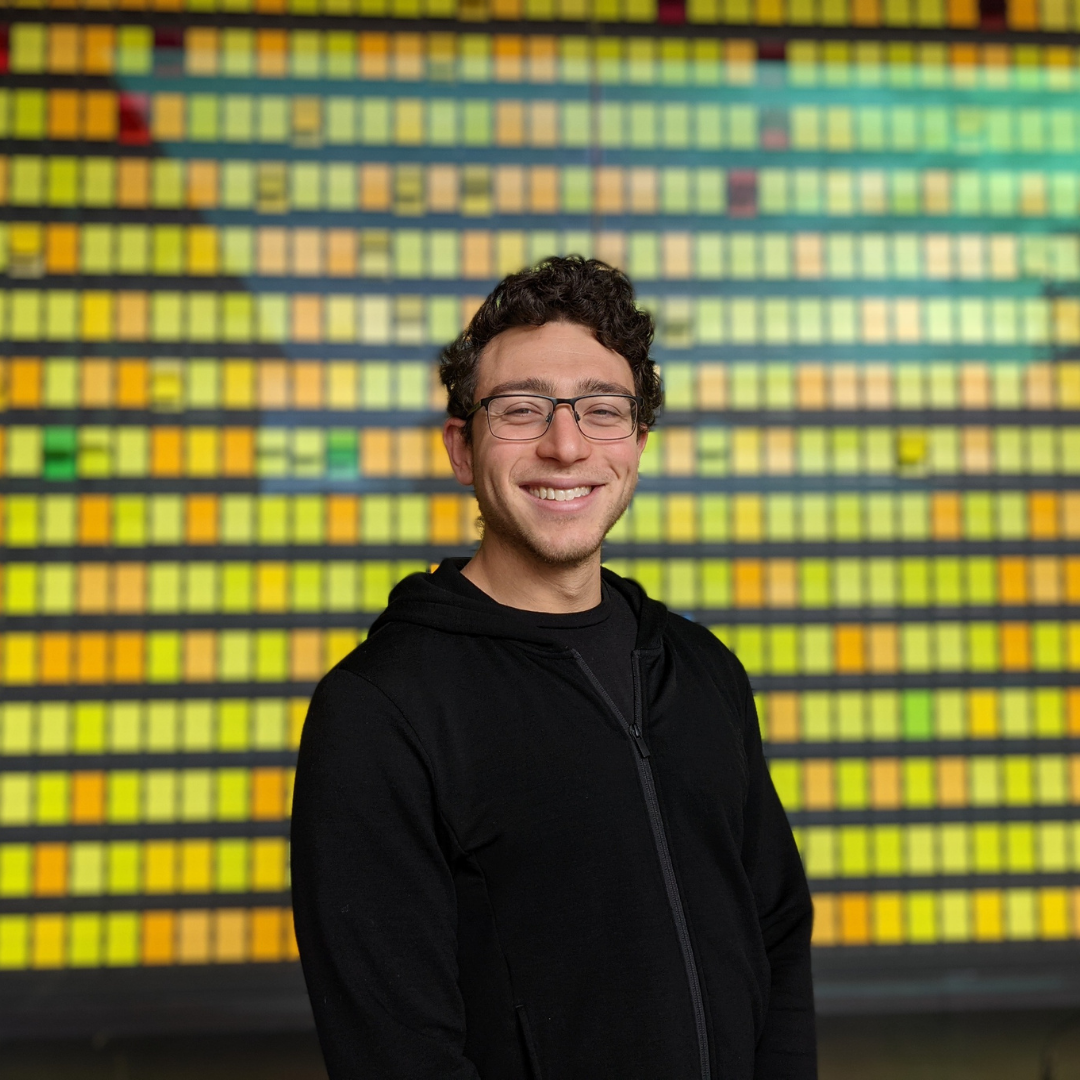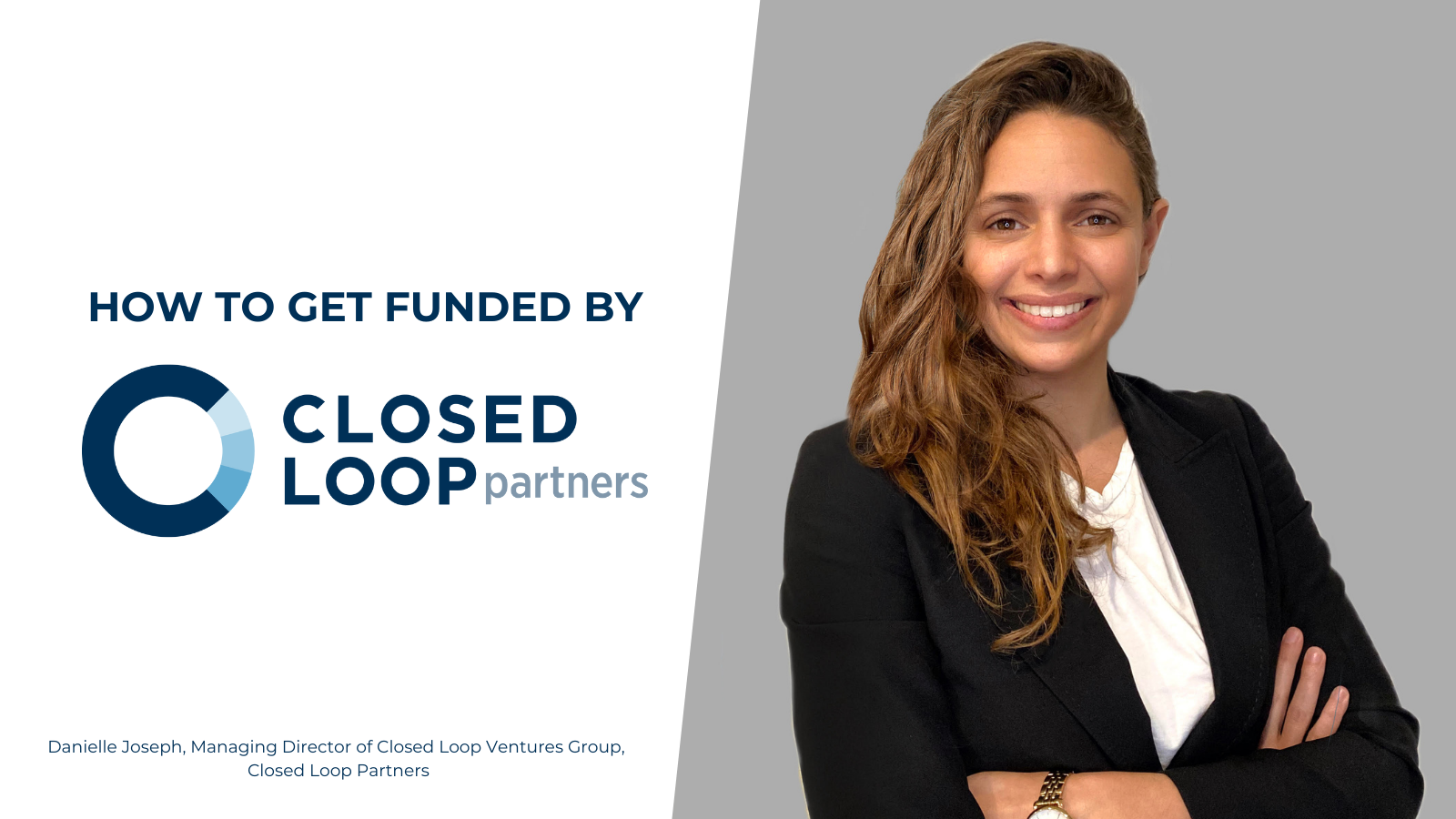Get the full series showing you how to raise from the top climate VCs in this industry. Subscribing also adds you to our weekly newsletter.
Closed Loop Partners (CLP) is a New York City-based investment platform and innovation center dedicated to the circular economy. Closed Loop Ventures Group (CLVG) is the earliest direct investment vehicle within the investment platform. CLVG invests early-stage equity across the sectors of plastics & packaging, food & agriculture, fashion & beauty and supply chain logistics & tech. Closed Loop Ventures Group now has 25 portfolio companies across two funds and is actively deploying capital out of their second fund of $50m+.
Fund Snapshot
- Stage: Pre-Seed – Seed
- Check Size: $250K – 1M
- Geography: Global
- Lead/Follow: Lead and follow
- Revenue/Valuation Thresholds: Pre- and Early-revenue, At or below $10M post-money valuation
About the Fund
Why was the fund created?
CLP was created to build the circular economy. CLP’s Closed Loop Infrastructure Fund was started in 2014, where they were making loans to recycling infrastructure across collection, sortation and processing of recyclable commodity types found within curbside recycling streams. The Infrastructure Fund is backed by some of the world’s largest beverage, CPG, and retail companies including The Walmart Foundation, Coca-Cola, Starbucks, Unilever and Amazon, among others. Building out this infrastructure, CLP recognized the potential of breakthrough innovations that could help catalyze the circular economy. Thus, the Closed Loop Ventures Group (CLVG) was born in 2017 to invest in these novel technologies and business models.
What is a contrarian idea CLVG believes to be true?
CLVG believes that the linear economy is as inefficient as it is inequitable and environmentally damaging. CLVG challenges instances when all net-positive impact is flattened into oversimplified metrics, particularly CO2e. While it is perhaps easy to communicate in the same units, and while it is certainly important to both reduce and remove emissions, not all impact is easily quantified in this way.
CLVG looks at impact in a very nuanced and holistic way. They are thinking about systems change everywhere, from upstream in the supply chains through how products are designed and manufactured, as well as considering how consumers might interact with new products/services, and then also looking at the end of the life cycle. For instance, in the process of reducing emissions, CLVG is cognizant of biodiversity and the impacts of enabling innovations.
What domains in climate tech does CLVG have the greatest expertise in?
CLVG looks widely across the value chains of their core sector focuses of plastics & packaging, food & agriculture, fashion & beauty, and supply chain logistics & technology. Across the team and their network, they have expertise and knowledge in:
- Mechanical recycling and MRF operations
- Advanced recycling
- Biopolymers, and plastic alternatives
- Food loss
- Organics processing
- Regenerative agriculture
- Fiber materials
- Fashion
- Distributed manufacturing
- Supply chain transparency and traceability
- Carbon utilization
- Biomanufacturing
The team learns new industries with each new deal, and as such they remain humble experts and life-long learners.
What type of portfolio support does CLVG provide?
CLVG is an active, engaged investor, especially as CLVG only invests in 20-25 startups per fund. Danielle Joseph leads CLVG’s portfolio management and is supported by a number of other folks within the ecosystem who sit on boards and provide strategic support, including other Managing Directors and Venture Partners.
About Investments
What is CLVG’s investment process and timeline?
CLVG has a relatively intensive diligence process because they are active investors who like to hit the ground running with their portfolio company. CLVG vets a team, in addition to really digging into a startup’s financials and unit economics. CLVG typically takes 3-7 weeks of diligence before getting to a point of a term sheet.
What would make CLVG consider deviating from their typical criteria?
CLVG is disciplined with their investment criteria – particular for returns and impact. That said, the circular economy wasn’t a popular term even just about 2 years ago, so they’re constantly listening to where the market is going and ensuring that they meet the investment opportunities who are innovating at the forefront of this burgeoning space.
About The Author

Daniel currently works at Lawrence Livermore National Laboratory as a Product Manager. Outside of his day job, he is a Principal at C3, Tech Scout at For ClimateTech, and Venture Scout at Prithvi. He also works with various climate incubators/accelerators (Cleantech Open, Techstars, and Joules Accelerator) and runs The Impact and Innovate Climate – both are newsletters covering startups in the climate space.

